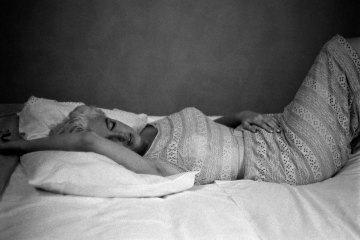As the days get shorter and winter closes in, many people feel like hibernating. We start sleeping more, eating more and avoiding social contact. The effects can be particularly oppressive for people with depression, many of whom feel escalating dread as the end of daylight saving time approaches. Here are eight ways to keep the black dog at bay after you turn back the clocks.
8 Ways to Beat the Winter Blues
Michael Terman, director of the Center for Light Treatment and Biological Rhythms at Columbia University Medical Center, notes that winter depression is often spurred by waking up in darkness rather than light, which affects your body clock in a way that he calls "depressogenic." Paradoxically, then, this means that the end of daylight saving time may initially help those who suffer winter depression, because turning the clock back means it will more likely be light out when you wake up. "On the Sunday of the change to standard time, all other things being equal, the sun rises an hour earlier relative to sleep. One would think this might provide a temporary respite," he says. Change in and of itself, however, can be jarring, causing sleep loss. "This transient effect can in fact have medical consequences in vulnerable people, even including cardiac emergencies," says Terman, noting that heart attacks and car accidents increase after the time change. (MORE: Could a Body-Clock Drug Help Ease Depression?) For people who are prone to the winter blues, Terman suggests trying light therapy. Exposure to bright light, especially upon waking up, has three major positive effects that can relieve depression, Terman says. "It keeps the circadian clock in check, preventing it from drifting later than your desired, or workday, sleep period. It's an energizer that gives a morning boost, whether you're depressed or just sluggish. And it has direct antidepressant properties, stimulating the same neurotransmitters as antidepressant medications," he says. Special types of lights are required; it's not enough to flick on your bedside lamp. A visit to a therapist who specializes in this treatment is also recommended, although light boxes can be purchased without a prescription. Terman's website has a questionnaire to help you determine the best time of day to use light therapy, based on how much of a morning or night person you are. If you are prone to depression and are already using light therapy, Terman suggests skipping your usual dose this Sunday to help your body adjust to the new time schedule, and then resuming afterward at the same hour you used it previously. Even if your depression doesn't have a seasonal pattern, research shows that light therapy can help: it has been found useful for treating bipolar depression, depression during pregnancy and chronic depression. MORE: Is Daylight Saving Time Bad for Your Health?






